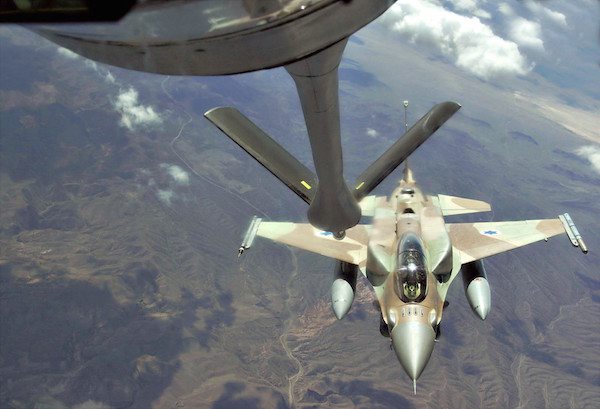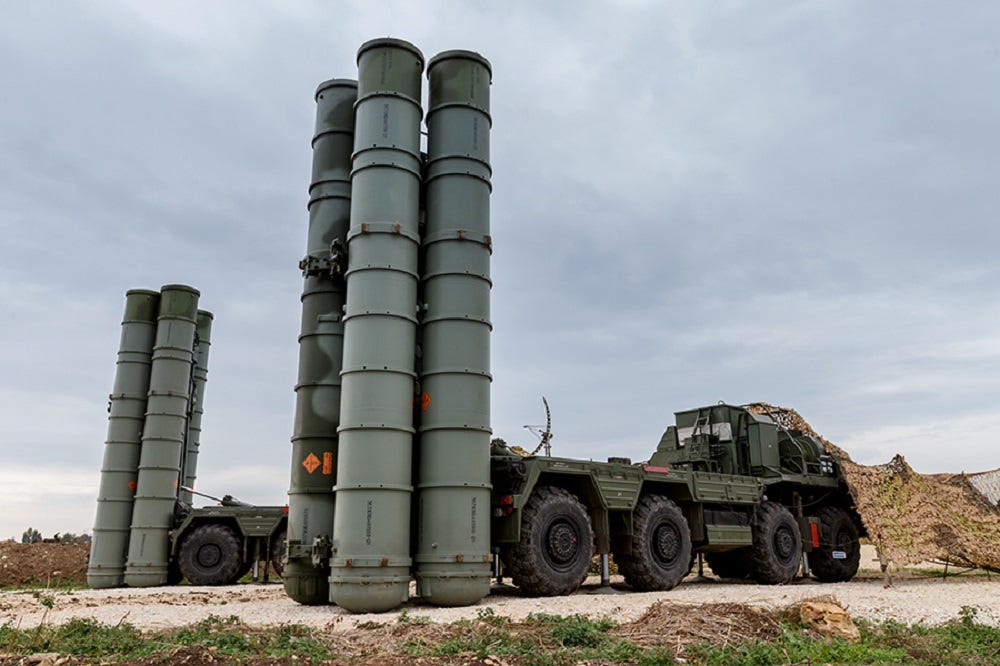The Kremlin’s missiles could threaten Israeli warplanes, but it’s curious that they haven’t
Israel’s Arrow missile defense system saw its combat debut in March 2017 when it shot down a Syrian S-200 surface-to-air missile, which was fired at Israeli fighter jets. The jets were returning home from an air strike inside Syria, reportedly targeting Syrian military positions in the country’s Homs province.
This strike possibly constitutes the deepest Israeli air mission into Syrian territory so far during the civil war.
“The next time the Syrians use their air defense system against our planes we will destroy them without the slightest hesitation,” Israeli Defense Minister Avigdor Lieberman declared following the incident.
For its part, the Syrian regime threatened to fire Scud ballistic missiles into Israel in retaliation for future strikes. This response, a Syrian government statement added, would target Israeli military bases were Israel to attack Syrian military targets, and Israeli civilian targets in retaliation for Israeli attacks which hit Syrian civilian targets.
“Syria’s forceful response to the Israeli attacks changed the rules of the game,” said Bashar Al Ja’afari, Syria’s ambassador to the United Nations. Israel, he added, “will now think a million times before striking again.”
The latest Israeli strike and the exchange of threats are very serious, and the possibility of a military confrontation raises the question as to what Russia — which is friendly with both sides — could or would do. But whatever Russia does, it would stand to lose either way, which is why it has reacted to previous Israeli strikes hardly at all.

“Escalation of the confrontation between Syria and Israel would mean that Russia has limited influence on both actors,” Timur Akhmetov, an analyst who specializes on Russia’s Middle East foreign policy, told War Is Boring.
“Of course, it may damage Russia’s image in the region as a power that can keep order,” he said. “Any serious confrontations will make Russia face a serious decision — either increase its involvement in the Middle East and suffer inevitable casualties or renounce its plans of becoming a leading power in the region.”
Before the latest air strikes, Israeli Prime Minister Benjamin Netanyahu visited Russian President Vladimir Putin to discuss Iran’s presence in Syria. The Assad regime and Hezbollah are Tehran’s main allies in the Levant. The flow of Iranian troops and weapons into Syria have been vital to both sustaining Assad’s grip on power and turning the civil war’s momentum in the regime’s favor.
Israel vehemently opposes Iran establishing a second front along the Golan Heights or acquiring formidable Russian-made anti-air and anti-ship missiles from Syria’s arsenal — which is the primary reason Israel has launched intermittent raids into Syria since at least January 2013.
But Israel wants to stay out of Russia’s way, and the Kremlin seems to think it’s in its interest to do likewise. Immediately after the Russian military build-up in Syria in September 2015, Netanyahu visited Putin and established a “deconfliction” agreement to avoid clashes.
Russian warplanes breached Israeli airspace in the past but were not targeted, which is in stark contrast to how Turkey has dealt with unwanted aircraft. In November 2015, a Turkish F-16 shot down a Russian Su-24 bomber which briefly strayed into Turkish skies, resulting in the death of the pilot who was killed by rebel ground fire while still in his parachute.
The shoot-down resulted in a tense seven-month-long estrangement between Moscow and Ankara.
But Israel’s latest Syrian air strike is the first time Russia has openly demanded an explanation from Israel — the air strikes in Homs reportedly impacted near Russian troops.
The Israeli government claimed the raid was part of its consistent policy of preventing any potential Hezbollah missile acquisitions. Russia has never attempted to directly hinder Israeli air strikes into Syria — although it could.
The Kremlin has deployed sophisticated, long-range S-400 air-defense missiles to Syria, which are well capable of threatening Israeli aircraft if Russia chooses to. Russian warplanes — including fighter jets — are in the air.
However, this doesn’t mean Putin has given Israel the green light to attack Syrian military targets. It’s possible he is willing to overlook them provided they do not fundamentally threaten Russia’s goal keeping Assad’s regime intact.
In November 2016, Russia convinced the Syrian government to stand down after it threatened to shoot down Turkish jets operating over northwest Syria, where the warplanes were providing air support to Turkey’s Euphrates Shield operation.
The Kremlin would likely attempt a similar move to deescalate any potential clashes between Israel and Syria. If it failed to do so this would gravely harm Russia’s image as a leading power and arbiter in the region, as Akhmetov pointed out.
“I think the Russians would pull back as much as possible in the event of a confrontation between Israel and Syria,” said Neil Hauer, an analyst focusing on Russian-Syrian relations at the Canadian intelligence firm SecDev.
“While Russia and Israel have problems in their relationship, Russia certainly does not want to torpedo relations by backing a reckless and counter-productive escalation by the Assad regime, which is what would likely spur such a conflict.”
“Israel has no real qualms with Russia’s presence in Syria and as such the two sides would likely be able to work out contingencies to avoid Russian casualties,” he added. “Russia and Iran have a tense relationship in Syria as they have different goals and resent each other’s influence, and I don’t see the Russians backing Assad/Iran/Hezbollah against Israel.


